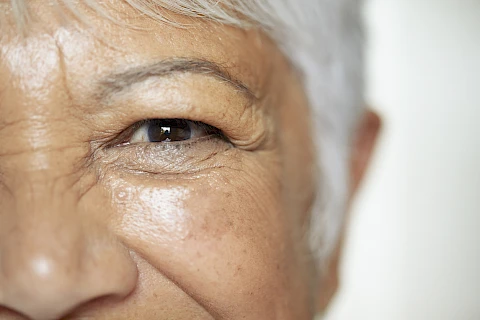
Eye strain is a common issue among seniors. It can affect even those who already wear glasses or contacts. As we age, understanding how to avoid eye strain is key to maintaining good eye health. Explore eye strain in depth, from understanding what it is and how it impacts seniors to practical steps that can be taken to avoid it. By following these recommendations, seniors can enhance their visual comfort and preserve their eye health, ensuring a better quality of life.
Eye Strain in Seniors
Eye strain, also known as asthenopia, might feel like tired or achy eyes—an uncomfortable sensation after prolonged activities such as computer work or reading. Our eyes naturally degenerate as we age, making them more susceptible to strain. For seniors already using glasses or contacts, age-related changes can still cause eye strain if prescriptions aren't updated regularly.
Common Causes of Eye Strain in Seniors
Prolonged screen time is a major cause of eye strain. In today's digital era, seniors often engage with screens like televisions, tablets, e-readers, and smartphones. Other common causes include poor lighting conditions, which force the eyes to work harder, and wearing glasses or contacts with an outdated or incorrect prescription. Certain underlying health conditions, like diabetes or hypertension, can also influence eye health and potentially contribute to eye strain.
Symptoms of Eye Strain
Eye strain can manifest in several ways, primarily as discomfort, fatigue, burning, itching, blurred vision, or headaches. Some seniors may also experience dry eyes or increased sensitivity to light. Remember that these symptoms can also indicate more serious conditions, so seeking medical attention is crucial if you notice persistent or severe symptoms.
Tips to Avoid Eye Strain
Preventing eye strain primarily involves adapting your environment and habits. Regular eye check-ups are vital to ensure that your prescription is up-to-date and that potential eye health issues are caught early. When wearing glasses or contacts, ensure they are used appropriately. For instance, don't read or work on screens without them if prescribed for these activities.
Ensure your environment is well-lit, but avoid intense lighting that creates glare, particularly on screens. If you frequently engage with digital devices, take regular breaks using the 20-20-20 rule: every 20 minutes, look at something 20 feet away for 20 seconds. Incorporating simple eye exercises, like blinking or eye-rolling, into your daily routine can also help ease eye strain.
Importance of Eye Health in Maintaining Overall Well-Being
Your eye health plays a significant role in your overall well-being. Chronic eye strain can affect your quality of life by making daily tasks difficult or uncomfortable. Good eye health enables you to maintain your independence, engage with the world, and continue doing the activities you love.
Senior Helpers Portland West Is Ready to Assist You on Your Path to Better Vision
Preventing eye strain in seniors involves understanding its causes and symptoms, making simple lifestyle adjustments, and prioritizing regular eye care. Remember, it's easier to prevent eye strain than to treat it, so don't overlook the health of your eyes.
If you are a senior living in Lake Oswego, Portland, Beaverton, or Hillsboro, Senior Helpers Portland West is here to support your journey to healthier eyes and a better quality of life. Our services are designed to assist in your everyday life and promote optimal health. Contact us today to learn more about how we can help.